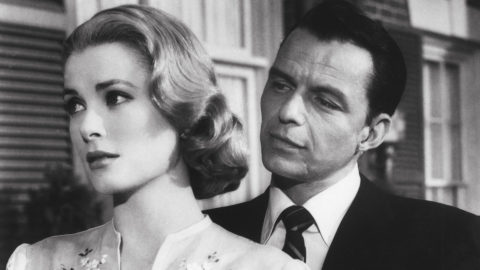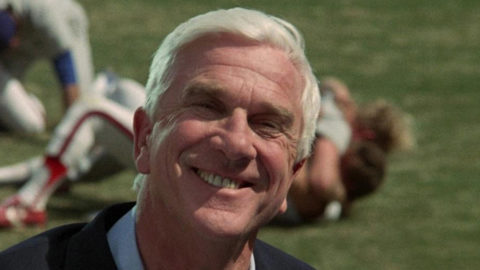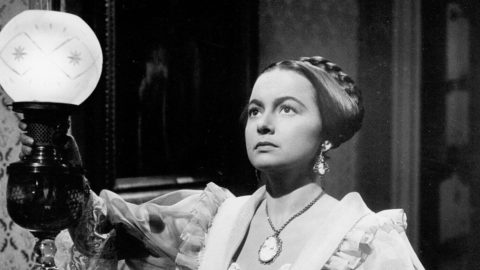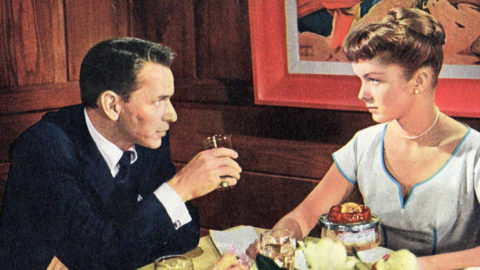TCM Diary: Dorothy Malone Knows
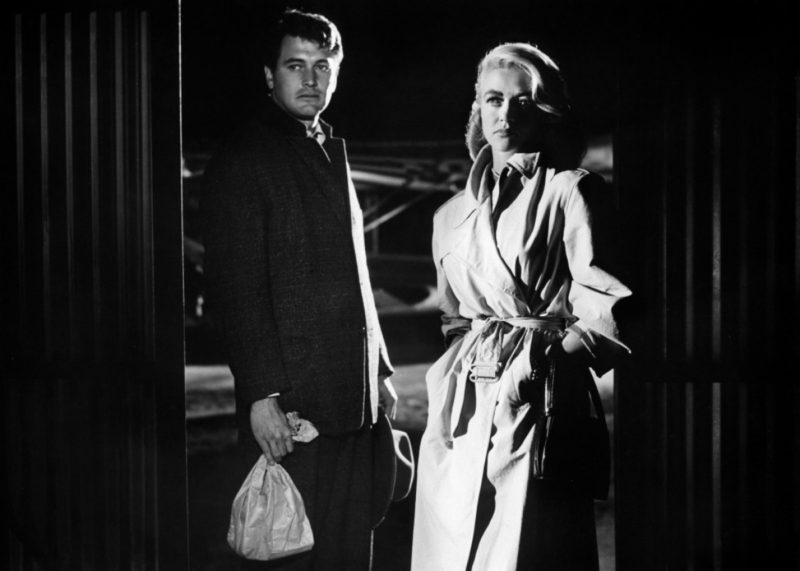
The Tarnished Angels
“And, you know, people remember that scene.”
—Howard Hawks on Dorothy Malone’s one scene in The Big Sleep
In a movie filled with memorable scenes, people do remember that one. In her first speaking role, opposite Humphrey Bogart as Philip Marlowe, Dorothy Malone more than holds her own. As Marlowe questions her about the comings and goings across the street, the dynamic morphs quickly into a two-sided come-on.” When she pulls down the window shade, Malone turns the moment into an eloquent gesture loud with subtext, grinning at Bogart the whole time. David Cairns wrote at The Chiseler: “The whole thing is probably the most sex-positive scene in classic Hollywood, with no romance, no tut-tutting, just desire aroused and sated, respectfully.” In a film rampant with twisted sexuality, Malone’s “Acme Book Shop Proprietress” exists in a utopia. She made such an impression that 72 years later we’re still talking about it.
As seen through the appreciative eyes of Howard Hawks, Malone—who died this year at 93—could be both “good girl” and sexual woman (not “bad girl”). The 1950s were a different story, but—maybe because of the popularity of Freud or the influence of the Actors Studio and Tennessee Williams—Malone found new space, her pleasure now pierced with neuroticism. She was tragic as the ruined Diana Barrymore in Too Much Too Soon, and she lets loose in Frank Tashlin’s Artists and Models, playing a cartoonist told by Dean Martin “I like the way your bone structure is structured.” In the Roger Corman production The Fast and the Furious, she plays Connie, a racecar driver zipping around in a white Jaguar XK120, who is then taken hostage by a trucker wanted for murder (John Ireland, who co-directed with Edward Sampson). With almost no close-ups, Malone gives the undeveloped Connie nuance and subtlety.
There was always something a little spiky about Malone’s persona. Her spirit bucked against restrictions. This gave her body a restlessness, which could be sexy or disturbing, depending. Her eyes were very big and very sad. “The world has not done right by me,” say those eyes. Her best roles were the ones where she was allowed to express all of this. She usually played the smartest person in any room.
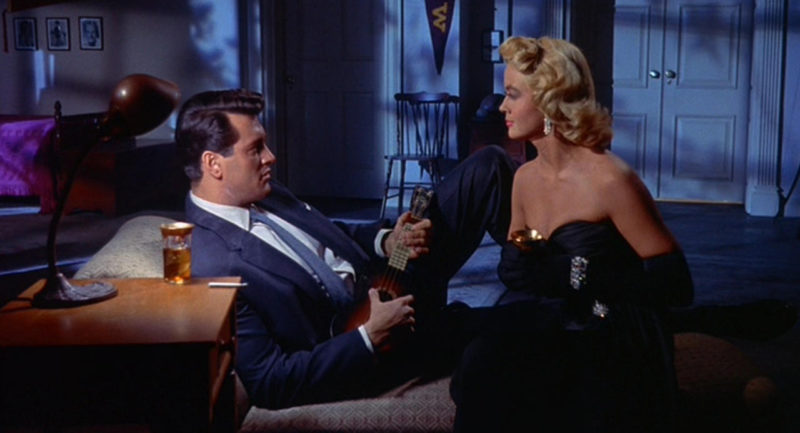
Written on the Wind
This was true even in her Oscar-winning performance as Marylee Hadley in Douglas Sirk’s Written on the Wind. Marylee is Tennessee Williams on amphetamines and possibly hallucinogens, but she is the only character who reacts with appropriate horror to society’s absurdity. She dances in a frenzy just to get it all out. (In one scene, it is suggested her dancing kills her father!) Marylee is in love with her childhood friend (Rock Hudson), enmeshed with her brother (Robert Stack), seething with jealousy at Kyle’s wife (Lauren Bacall) and written off by her father (Robert Keith). Marylee picks up men at truck stops. The final shot is Malone’s: she weeps in her father’s office, clutching the model of an oil well, running her hands up and down the sides. Her body language as Marylee is surprisingly awkward. At times she seems about to snap in two. She tries to be a vamp, but she’s really just a damaged kid in the body of a bombshell. There’s one scene where she stands in the middle of a party, wearing a black gown and holding a drink, surrounded by couples. She looks utterly broken. It takes nerves of steel to give a performance like this.
In Tip on a Dead Jockey, a psychological drama directed by Richard Thorpe, Malone played Phyllis, the suffering wife of Lloyd (Robert Taylor), who was once a pilot and war hero, now living a dissipated life in Madrid, where Phyllis tracks him down. Malone is the vision of a 1950s wife, in prim suits and white gloves, but her body language gives her away. Her tense arms clench her body, like it’s hard to hold herself together. When Lloyd hugs her during an exciting horse race, she twists her arms around herself so tight it’s a coat of armor. Phyllis looks like a woman barely contained by her assigned “role.” You can see her erecting the mask of “understanding wife,” but you can also see what the mask costs her. In the final moment, she literally runs to the bedroom to join Lloyd in bed. Malone gives this generic role some real bite.
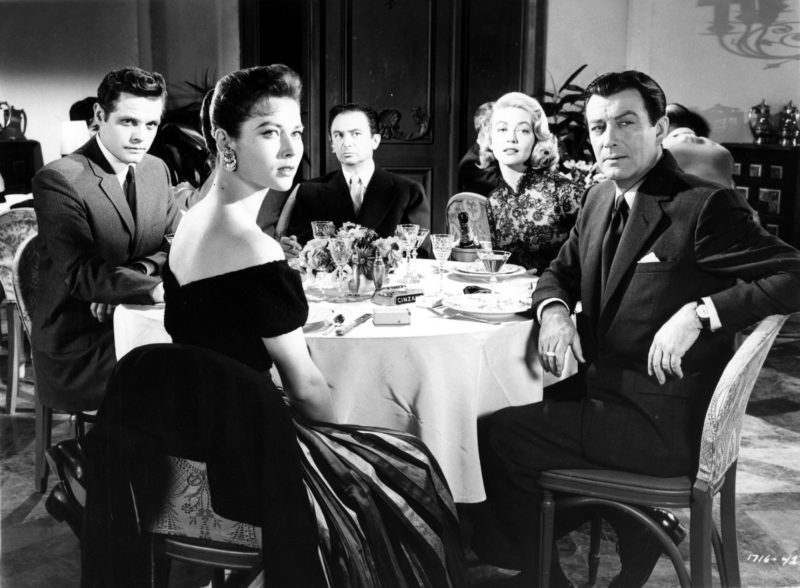
Tip on a Dead Jockey
In Tarnished Angels, she reunited with Sirk, Hudson and Stack, giving one of her best performances as LaVerne Shumann, the mistreated parachutist wife of a barnstorming pilot (Stack). Triangulated by men—her husband, their mechanic (Jack Carson), and alcoholic journalist Burke (Hudson), LaVerne has been so used by men she’s brittle. Listen to how she says the word “propositioned.” Her tone could cut glass. Burke allows them to crash in his apartment, and LaVerne stays up late, reading Willa Cather’s My Antonia, drinking wine in unladylike gulps. It’s the Book Shop Proprietress of The Big Sleep in an alternate sadder universe. Malone’s LaVerne is tormented but strong, vulnerable but wise.
Malone hit pay dirt with the television series Peyton Place, playing the controlling mother of Mia Farrow. After a dispute with the producers, she was written out of the show. Her career was 20 years old by then, and she was only in her forties, but good roles dried up. She said, “I want to work. I need to work.” It’s a sadly typical story.
Her final role was in Basic Instinct, where she played Hazel, friend to murderess-novelist Catherine (Sharon Stone). Hazel is also, as it turns out, a murderess, so the friendship makes sense. But what also made sense was seeing the vamping prickly Stone next to the glamorous white-haired Malone. In many ways, Sharon Stone walked down a path carved out by Dorothy Malone. The casting was an inside wink to those of us who loved Malone from the moment she said her first line in The Big Sleep. While it’s a shame that Malone didn’t work after Basic Instinct, the film was a fitting sendoff for this complicated actress who wiggled out of any female stereotype handed to her.
The Tarnished Angels, The Fast and The Furious, Written on the Wind, and Tip on a Dead Jockey air August 10 on Turner Classic Movies.
Sheila O’Malley is a regular film critic for Rogerebert.com and other places including The Criterion Collection. Her blog is The Sheila Variations.



